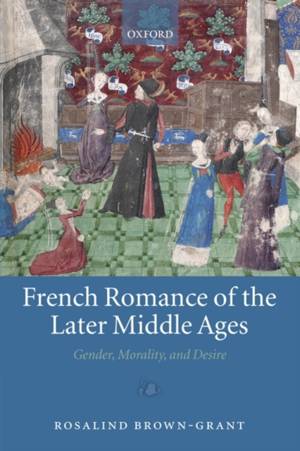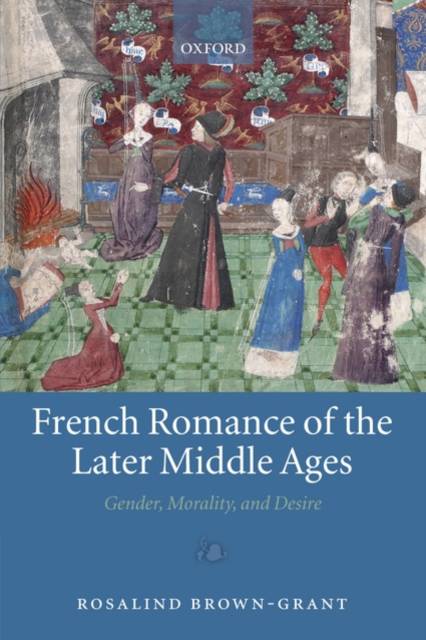
En raison d'une grêve chez bpost, votre commande pourrait être retardée. Vous avez besoin d’un livre rapidement ? Nos magasins vous accueillent à bras ouverts !
- Retrait gratuit dans votre magasin Club
- 7.000.000 titres dans notre catalogue
- Payer en toute sécurité
- Toujours un magasin près de chez vous
En raison de la grêve chez bpost, votre commande pourrait être retardée. Vous avez besoin d’un livre rapidement ? Nos magasins vous accueillent à bras ouverts !
- Retrait gratuit dans votre magasin Club
- 7.000.0000 titres dans notre catalogue
- Payer en toute sécurité
- Toujours un magasin près de chez vous
French Romance of the Later Middle Ages
Gender, Morality, and Desire
Rosalind Brown-Grant
Livre relié | Anglais
152,95 €
+ 305 points
Description
While French romances of the twelfth and thirteenth centuries have long enjoyed a privileged place in the literary history of France, romances from the later middle ages have been largely neglected by modern scholars, despite their central role in the chivalric culture of the day. In particular, although this genre has been seen as providing a forum within which ideas about masculine and feminine roles were debated and prescribed, little work has been done on the gender ideology of texts from the fourteenth and fifteenth centuries. This study seeks to fill this gap in the scholarship by analyzing how the views of gender found in earlier romances were reassessed and reshaped in the texts produced in the moralizing intellectual environment of the later medieval period. In order to explore these topics, this book discusses sixteen historico-realist prose romances written in the century from 1390, many of which were commissioned at the court of Burgundy. It addresses key issues in
recent studies of gender in medieval culture including the construction of chivalric masculinity, the representation of adolescent desire, and the social and sexual roles of husbands and wives. In addition to offering close readings of these texts, it shows how the romances of the period were informed by ideas about gender which circulated in contemporary works such as manuals of chivalry, moral treatises, and marriage sermons. It thus aims not only to provide the first in-depth study of this little-known area of French literary history, but also to question the critical consensus on the role of gender in medieval romance that has arisen from an exclusive focus on earlier works in the genre.
recent studies of gender in medieval culture including the construction of chivalric masculinity, the representation of adolescent desire, and the social and sexual roles of husbands and wives. In addition to offering close readings of these texts, it shows how the romances of the period were informed by ideas about gender which circulated in contemporary works such as manuals of chivalry, moral treatises, and marriage sermons. It thus aims not only to provide the first in-depth study of this little-known area of French literary history, but also to question the critical consensus on the role of gender in medieval romance that has arisen from an exclusive focus on earlier works in the genre.
Spécifications
Parties prenantes
- Auteur(s) :
- Editeur:
Contenu
- Nombre de pages :
- 304
- Langue:
- Anglais
Caractéristiques
- EAN:
- 9780199554140
- Date de parution :
- 15-01-09
- Format:
- Livre relié
- Format numérique:
- Genaaid
- Dimensions :
- 236 mm x 157 mm
- Poids :
- 558 g

Les avis
Nous publions uniquement les avis qui respectent les conditions requises. Consultez nos conditions pour les avis.






